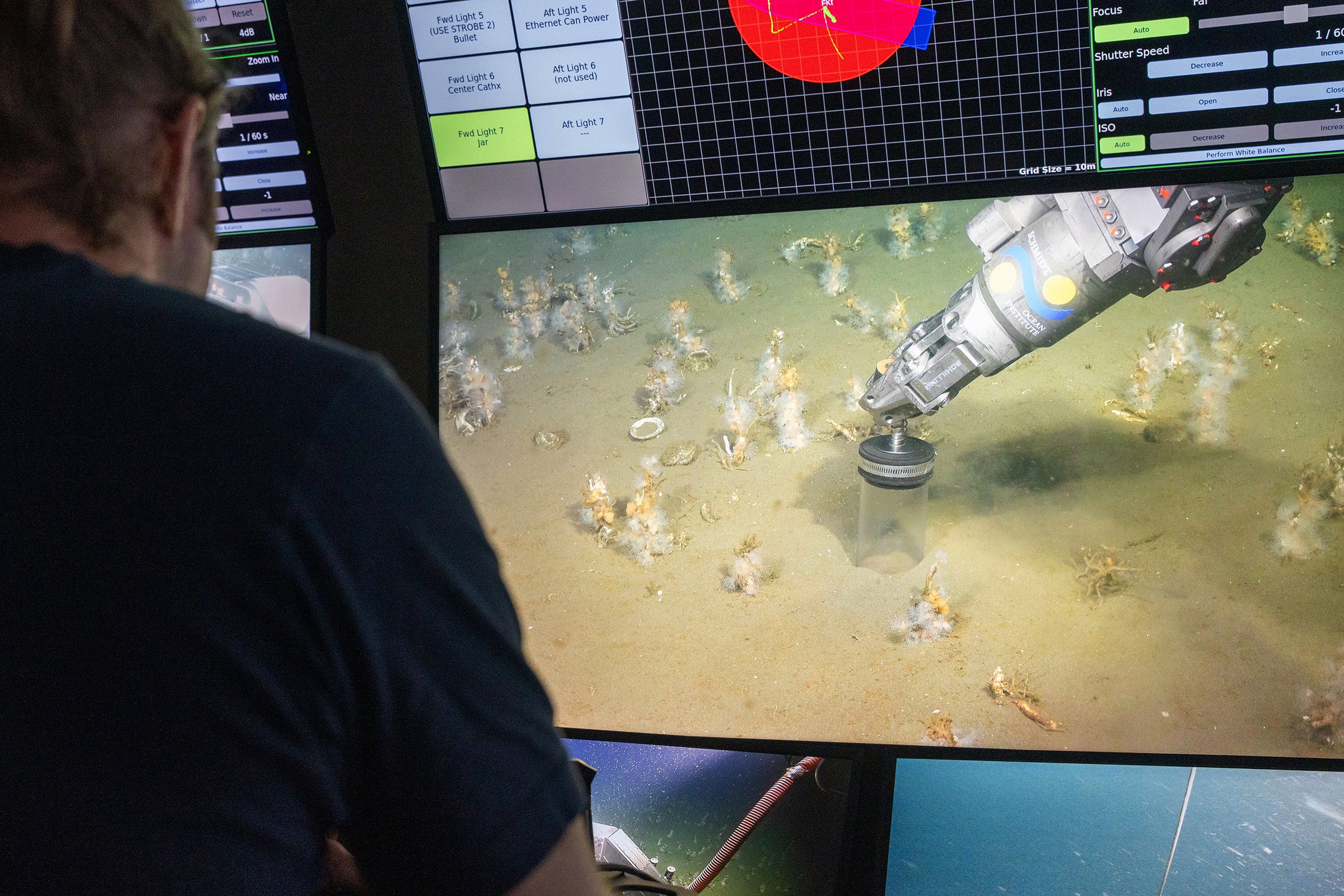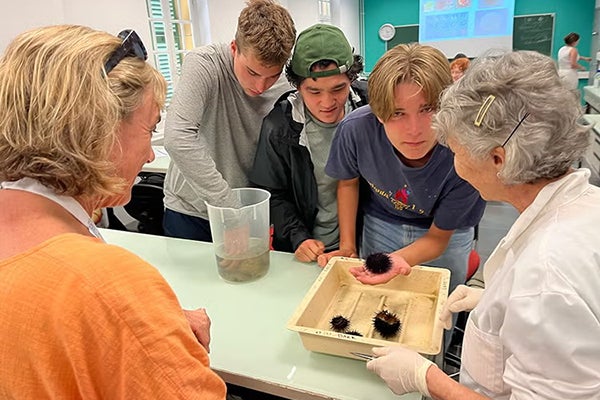News: Integrative Biology
Read the latest news from the College of Natural Sciences at The University of Texas at Austin
A Break in a Longstanding Mystery about Origin of Complex Life
Breathe easy. It appears our microbial ancestors used oxygen, too.

Texas Global
Passport to Possibility: Inspiring Global Careers
Jennifer Fritz offers science students culturally immersive experiences combining academic rigor with the numerous benefits of studying in a different country.

Microbiology and Mentoring: Meet Grad Student Mariangel Correa Orellana
Driven by her love for the ocean, one student studies how Hawaiian shrimp interact with microbes and temperature.

Destroying Crazy Ant Nest Structure Makes Them Vulnerable to Pathogens
Research initiated at a UT field station keeps progressing. That is good news for a war on an invasive species.

UT News
From Research to Results: UT-City of Austin Partnership Delivers
Tim Keitt and Ed LeBrun are among the UT researchers helping Austin, combat invasive species and plan for tomorrow.

A New Tool for Healthcare Gives Better Outbreak Forecasts
Pinpointing an outbreak’s peak, the approach can boost health systems’ preparedness and risk communication.

Vulnerable Salamanders, Key to Healthy Ecosystems, a Focus in Two Studies
A pair of studies from UT Austin offer insights into these keystone species.

Extreme, Prolonged Drought Slashes Productivity of Grasslands, Shrublands
Research published in the journal Science on water-deprived plants involved Texas Field Station Network experts.

Texas Global
Kelly Zamudio Awarded Fulbright Distinguished Scholar Award
As a Fulbright U.S. Scholar, the professor of integrative biology is leading cutting-edge exploration alongside collaborators in Brazil.

So What Should We Call This – a Grue Jay?
The rare hybrid offspring of a blue jay and a green jay is likely a result of weather-related shifts in the range of two species.

